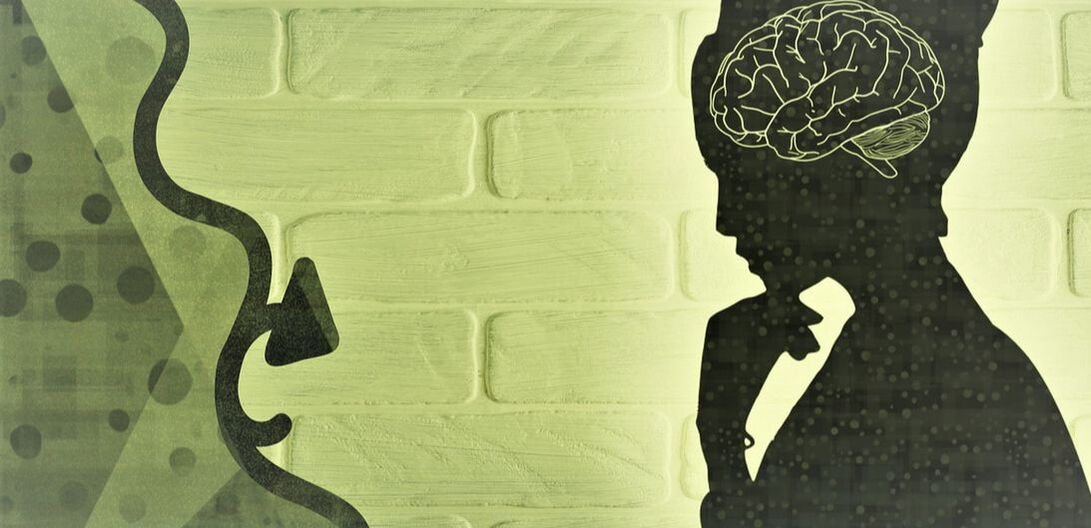“The quieter you become, the more you are able to hear.”
― Rumi By definition, God is an omnipotent and omnipresent being, existing in and through all things, including our very thoughts and inner dialogues. Therefore, it should not be surprising that we could connect directly with Him. Many religious people dismiss the possibility of two-way communication with God. For them, prayer is the only valid way of connecting with the divine. Still, even prayer is not a one-sided communication. God always responds to our requests and thoughts through all possible means. These responses may come through a person who provides much-needed advice or signs in everyday life such as a rainbow, a four-leaf clover, or a pigeon feather—each carrying personal meaning. God may also guide us using sudden inspiration, novel ideas, dream symbolism, visions, imagination, or any other means suitable for us. Moreover, He can convey messages directly—through our stream of thoughts, providing a subtle yet profound form of divine guidance. After all, He is omnipotent and omnipresent. So, it is even more plausible that we could converse with God directly, instead of an angel, a spiritual guide, or similar. They are not within us, but God is. They are not omnipotent—God is. So, if we are open—God will contact us. Actually, He is always talking to us. The question is whether we are open enough to receive His messages. Two-Way Communication with God The idea that one can have direct conversations with God is not new. Throughout history, mystics, prophets, and ordinary individuals have claimed to have had such divine communication. One famous example in modern times is Neale Donald Walsch, author of the “Conversations with God” series, who wrote about his personal experiences of direct dialogue with the divine. Other people have reported similar experiences. For instance, Jerry Martin, a former professor and atheist, wrote about his unexpected conversations with God in his book “God: An Autobiography.” Similarly, Barbara Rose's “If God Was Like Man” presents what she describes as direct communications from God. These accounts, although diverse in their specifics, share a common thread of personal, intimate dialogue with the divine. We could say that the premise of these conversations is to have an open heart, as well as a calm mind. If so, God can reach out to us through our thoughts or direct insight, providing guidance and wisdom. This approach to spirituality suggests that the Creator is not a distant, unreachable entity, but an ever-present force that we can access within ourselves. Deeply Personal Messages Dear reader, I invite you to approach the presented dialogues with an open mind, understanding that they represent my own spiritual experience. Although I risk being judged by some as a “lunatic” or “blasphemous,” I don’t care. I truly believe that these insights may be as profoundly beneficial to others as they have been to me. The Creator is not a distant, unreachable entity, but an ever-present force that we can access within ourselves.
Honestly, until relatively recently, I didn’t believe I could establish any kind of direct, two-way communication with God Himself. Such an idea, applied to us “ordinary people,” seemed far-fetched, even arrogant. But one day, an unusual stream of thoughts appeared in my mind while on a plane, 10 km high. I spontaneously started asking myself questions, and for each question, I received a very reasonable and sharp answer immediately. I asked if it was God or some other divine being answering, and the response was—God. That unusual inner dialogue lasted for a while, perhaps half an hour.
After that event, I still wasn’t convinced it was truly a conversation with God Himself. However, several more times such dialogues happened, even clearer. I had also received confirmation from other reliable sources that I had established regular communication with the divine. Then I rediscovered Neale’s “Conversations with God” series, which finally dispelled my doubts. At last, I accepted it. And that marked a significant cornerstone in my life. God’s messages mean so much to me. They are deeply personal and supportive. His voice is not some external, foreign voice. It is in the form of my own thoughts, still recognizable as messages from a deep well of wisdom and love. He is always ready for a conversation, even if I’m not in a peaceful state of mind (although He emphasizes that His messages will not be as clear and genuine). God answers immediately, sometimes even before I finish my question. He is NEVER judging; He ALWAYS understands both me and other people. He understands our mistakes, confusions, dilemmas, and even misdeeds. In response to all of this, He offers wise solutions that are often surprising to me. God says that to have a clear conversation with Him, we must calm our minds, open our hearts, ask a question or say something to Him, and wait for a response. A calm mind and an open heart are both key in this sublime yet natural process. We may have to wait a little, but His response will inevitably come. Perhaps not immediately in the form of thoughts, but maybe as a vision, a sudden insight, or any kind of external event. Any person may "interrupt" us and tell us something that will, in fact, be the answer. God’s ways are infinitely creative and sometimes totally unexpected to us. Over time, our communication with God may develop into clear, inner talks with Him. To have a clear conversation with Him, we must calm our minds, open our hearts, ask a question, and wait for a response.
Of course, in this article, I am presenting only small parts of conversations that apply to a wider audience. Most of the talks were related to my personal matters. Many of the conversations I didn’t even write down.
Similar to the talks related to my personal life, God’s messages conveyed below emphasize love, forgiveness, personal responsibility, and the interconnectedness of all beings. They suggest a God who is not judgmental or punishing, but rather a source of unconditional love and guidance. One recurring theme in these dialogues is the importance of presence and awareness. Also, God suggests that by being present and aware of our thoughts and emotions, we can better connect with the divine within us. Another key point is the emphasis on personal responsibility and free will, with God respecting and honoring the choices we make. These dialogues also touch on more complex spiritual concepts, such as the nature of reality, the purpose of suffering, and the mechanics of creation. They present a view of God that is both immanent (present within all things) and transcendent (beyond all things), challenging traditional anthropomorphic conceptions of deity. Whether or not you believe in the possibility of direct dialogue with God, I feel that these conversations offer thought-provoking perspectives on spirituality, ethics, and the nature of existence. They cover a wide range of topics, from the nature of forgiveness and love to the process of spiritual growth and the essence of God's nature. I invite you to delve into these conversations, but please keep in mind that they may represent somewhat distorted messages from God, due to my own inner “filters” or too rigid beliefs. Nevertheless, I firmly believe that you will find many insights that resonate with your spiritual journey, or ideas that challenge your current beliefs. Dialogs with God, 2023/2024 (originally transcribed in Serbian) Me: I now recognize Your voice, which has always been present, though I had not acknowledged it before. God: Yes, it is My voice. You have also heard Me through your guardian angels, spirit guides, and Higher Self, but it has always been Me. They, like your mind, act as filters—though somewhat clearer ones. I have always talked to you, and I still do. Me: How can I distinguish thoughts that are Yours from thoughts that are from my ego? God: All thoughts are Mine, but still those thoughts that come from a calm mind and a state of presence are authentically Mine. Those thoughts are My messages that come through your ego’s weakest part of its filter, although the ego is also Mine in a certain way. When you are in a state of anxiety, stress, or when you are ruled by emotions, then the thoughts you have are the thoughts of your ego. Those are My thoughts too, but they are not authentic, not expressions of God’s wisdom, because they come through numerous filters of the ego. So always bring yourself to a state of presence and love and I will be here, completely and clearly. Me: How can I feel Your Love, God? God: You will feel My love when you are in the state of love. Enter that state. Become love. It is indeed My love. That is My love for you and for everything. Me: Can I ask You various questions about life and the universe in general? God: As for receiving such information from Me, you will receive the information to the extent that you are willing to receive it. You will get them through the existing filters of your mind. Me: I have to ask You this, dear God. Why is there so much suffering and evil in the world? Why do you allow that? God: That's a question for another occasion, but here is My answer in a nutshell. First, suffering in the world is quite exaggerated by people. There is more peace and happiness than conflict and suffering here, but you are mostly focused on the latter. But I agree that there is too much of it. However, I gave you free will in the beginning and I stick to it. You are creating suffering for yourself. Because of your natural inertness, karma, and many other factors, you often have to go through suffering and discomfort to progress and return to Me. And one more thing. In many situations, in many cases, I prevent suffering without you even knowing it. Me: What advice do you have for forgiveness?
0 Comments
Overcoming Unhealthy Pride: Strategies for Transforming a Harmful Emotion into a Positive Force5/3/2023
 Image by Denis Doukhan from Pixabay Image by Denis Doukhan from Pixabay
“He that is proud eats up himself: pride is his own glass, his own trumpet, his own chronicle.” - William Shakespeare
David Hawkins, a late American psychiatrist, spiritual teacher and author of many books on consciousness and spirituality, talked a lot about this pride. In his famous “map of consciousness,” an ascending logarithmic scale that measures a variety of emotions and states of being that goes from 0 to 1000, Hawkins calibrated pride from 175 to 199 (where 200 represents a threshold between “negative” and “positive” states), right above fear, anger and guilt, but below courage, acceptance, and love. He used to say that pride is based on vanity and moralistic indignation. However, many people view pride as a positive emotion. We often see it as a potent force that may lead us toward great triumphs and accomplishments in life. In reality, it is a complex emotion that has both beneficial and harmful aspects. We will refer to these aspects as healthy, authentic pride, and unhealthy, hubristic pride. Two Aspects of Pride Healthy pride is a feeling of satisfaction and confidence in our abilities and achievements. It motivates us to pursue our goals and improve ourselves. Healthy pride is a source of joy, strength, and resilience. It enables us to celebrate our accomplishments without arrogance or envy. It empowers us to grow without fear or shame, limits or constraints. It is a complex emotion that has both beneficial and harmful aspects.

Image by Carina Chen from Pixabay
"To forgive is to set a prisoner free and discover that the prisoner was you." - Lewis B. Smedes
Forgiveness is a transformative and immensely powerful tool for personal growth and healing. It is an act that liberates the soul from the shackles of anger and resentment. It invites us to lay down our grudges and embrace a path of peace, a journey toward a future free from the burden of negativity. With forgiveness, we open our hearts to new possibilities, transcending the limitations of the past and healing our wounds. It takes courage to forgive, a willingness to let go and see the world with different eyes. But the rewards are sweet, a harmony that resonates within us, restoring relationships and fostering growth. However, while we often associate forgiveness with those closest to us such as friends, family members, and coworkers, it is crucial to extend forgiveness to wider circles of entities, including schools, the state system, politicians, perceived enemy nations, religious groups, and even God. While we often associate forgiveness with those closest to us such as friends, family members, and coworkers, it is crucial to extend forgiveness to wider circles of entities.
Forgiving larger entities may seem daunting, but it is an essential step toward inner peace and growth. These entities, though seemingly distant and out of our control, are actually a part of our inner being, representing our innermost structures. By truly and completely forgiving them, we reintegrate these parts of ourselves and take full responsibility for our lives. After all, the holographic principle suggests that our inner being and consciousness are mirrored and reflected in the outer reality of our life.

Image by Antonios Ntoumas from Pixabay
Dear friends,
Here are some ideas or suggestions which, although they do not cover all areas of life and are not universal, in my deep conviction could be truly precious for your life. Conscious Presence Strive to live consciously in the present moment. This does not mean that you should neglect planning or reflection, on the contrary – everything you do should be done with full awareness of yourself and that which you are doing. We can call such an approach “conscious presence” and it will bring you deep inner peace and efficiency in everything you do. For example, when performing daily or routine activities, be aware of yourself, your body, the environment, and the present moment as often as possible. Be here and now. Feel your body, the movements of your arms and legs. Observe everything around you without judging. Notice the small details, look at them as if you are seeing them for the first time in your life. Everything you do should be done with full awareness of yourself and that which you are doing.
Whenever you walk, be aware of the movement of your legs and arms. Watch your feet rhythmically touch the ground. Feel the ground under your feet. When you are at rest, become aware of the pure, empty space that is in you and around you, that stretches infinitely in all directions, as the basis and bearer of everything that exists. Pure space everywhere. This will quickly bring you into the alpha state of consciousness, i.e. a state of deep peace. Then focus on your breathing. Observe the airflow inside you. Feel the air as it passes through your nose and trachea and fills up your lungs. Follow its way back. Relax and do not change the rhythm of breathing. If a thought pops into your mind, simply go back to observing your breathing. Whenever you enter the present moment, you will also enter a state of calmness and relaxation. Even better, if you persevere in this practice you will become increasingly immune to stress. Moreover, for seemingly no reason, you will enter periods of deep inner peace and unspeakable joy more and more often. You will be more efficient in everything you do. You will have fewer and fewer unnecessary thoughts. Unwanted feelings and reactions will subside and will gradually integrate into the wholeness of your being. Conscious living in the present moment will have a beneficial effect on your life as a whole. People around you will feel it, many will improve their relationship with you, while unpleasant people will spontaneously leave your life. All these beneficial changes in your life will happen as a result of applying the other tips in this text as well. Gratitude Develop gratitude in your heart. It is one of the key and noblest feelings, extremely important for your inner peace, stability in life, and spiritual development. No matter how difficult or unjust life may seem to you, you always have countless reasons to be grateful. For example, you can feel gratitude for your existence, for your body, health, family, friends, for any seemingly small pleasure or smile that someone has given you… Feel gratitude for anything. The feeling is important, not the reason. You can send gratitude to God, angels, or dear people, although it does not have to be addressed to anyone - just feel that feeling. Challenges See all of your inconveniences and problems as opportunities to learn certain life lessons. Face the difficulties immediately, without exception. Think of them as challenges and opportunities for your growth. Try to look at any uncomfortable situation from a broader perspective. That trouble will also pass and you will emerge stronger. Always keep in mind that, after all, everything is an illusion and that the real, true existence is on higher, spiritual levels. In fact, the only true reality is God, that is, Infinite Consciousness. Everything else is fleeting. And even though it doesn't seem that way to you now, this world is an illusion. Face the difficulties immediately, without exception. Think of them as challenges and opportunities for your growth.
One of the most difficult obstacles to true forgiveness is our conscious or subconscious intention to change the people who have been hurting us.
This is wrong! It is not up to us to change anyone. We must change ourselves instead. Only in this way can we truly influence others. Let's say you have just forgiven your brother for hurting you. At least you think you have forgiven him. Alas, he hurts you again tomorrow in the same way and you get angry once more. Obviously, you have not forgiven him, otherwise, you wouldn't have become triggered by his behavior again. What was wrong with your forgiveness? We all want to change others, more or less. So, yes, we forgive them, but only for a particular action under certain circumstances. For this time only. But what about the future? Although we seemingly forgave them, subconsciously we expected them to change. We thought they are the one who should have changed, not us. They won't. Actually, they will, but at their own pace and in their own way, but it's not up to us. We must presume that the person is going to endlessly and perpetually cause us pain and forgive them despite that! Of course, easier said than done. Nevertheless, try this: imagine that the person you want to forgive will be hurting you endlessly. Assume that they are so stubborn that they are never going to change their behavior; that they will never transform into a better version of themselves. Imagine clearly that they will try to hurt you tomorrow even more. Suppose that he or she is unable to improve in any way. On the contrary, they may only become worse and worse and there's no end to this. We must presume that the person is going to endlessly and perpetually cause us pain and forgive them despite that!
Now, forgive them as such! Can you do that? Do you really want to get rid of this burden, to get your life force back?
Forgive this person as though they are going to worsen their behavior towards you, increasingly, forever. Do you possess such capacity, such depth of your character? If you do, congratulations – that's true forgiveness. If you don't – never mind. Do not judge yourself, we are all human beings. But the same problem will reappear. So, try again. Know that all your bad circumstances, all the people around you who are making you suffer, are all there for the purpose of your growth. From every such experience, you may extract some unique and truly valuable life lessons. Your worst enemies or the most stubborn and annoying friends are in fact your greatest teachers! Perhaps they agreed with you before this lifetime to make such a great sacrifice for you, that now you even consider them enemies or bad people, all with the goal of enabling you to learn the hardest life lesson - to truly forgive. Is there any greater sacrifice than that? For example, if your friend constantly gets into the same troubles while stubbornly and bluntly refusing your advice, and it's all annoying to you, stop trying to change her. Change yourself instead. Find within your own being the very trait that annoys you the most in her behavior. Although not being aware of that, she is actually teaching you, she is pointing to the important aspect of your personality you have to deal with now. And forgive her, truly and completely, with all your heart. Imagine that she will never, never change, that she is going to worsen instead and to annoy you for the rest of this life and…forgive her despite that! For the very act of forgiveness, to learn how to do it, you may use various techniques or approaches described in another article. But remember, only when you succeed in this kind of “eternal forgiveness,” have you truly let go, you are free. Don't forget that forgiveness is a process. You will probably have to forgive many aspects of the other person's unwanted behavior, as though they are all permanent. The same stands for any situation, circumstance, or thing in your life that brings you suffering. Accept it, forgive it totally, even though it is presumably going to persist as such eternally! If you are able to do this, you have truly learned forgiveness. Author: Emily Blunt Emily is a health & lifestyle blogger who spends her entire day writing quality blogs. Also, she is a passionate reader and loves to share quality content prevalent on the web with her followers. To know more about her, visit https://navishealth.com/ It's always easier to define mental illness than determining mental health; Mental health refers to a person's cognitive, behavioral, and emotional state; it comprises everything about how people feel, think, and behave. Mental health can affect the daily routine, physical fitness, and relationship with people. Mental health preserves the ability of a person to enjoy life and enables the person to create the balance between activities, responsibilities, and efforts to achieve daily psychological resilience.
A condition such as anxiety, depression, and stress affects mental health and disturbs daily living. Mental health basics refer to the state of a person to realize their own ability to overcome the everyday anxiety of life to be productive and contribute towards the community. Having good mental health relatively develops a healthy and happy life. Your mental health gets affected by many factors such as biological factors, family history of mental health, and even our genes. Things that can help you develop a healthy state of mind are:
Early Warnings For Mental Health Problems There are times when we are not aware that we are living with mental health problems. Here are a few common behaviors that a person develops as an early warning sign:
Recognizing the early stage of mental health problems makes it easy to cope and get back to everyday life. Characteristics Of Mental Health Satisfaction of life: Mental health and ability indicate the frequency of a person enjoying life. Some factors that play an essential role in life satisfaction include the absence of sickness, good relationships, the sense of being active in personal and professional life, and a feeling of hope. Resilience: People with resilience have the quality to develop positive views to cope with challenges and seek out support when needed; those who are more resilient not only easily cope with stress but are even able to face it strongly. Social support: Social support acts as one of the most important elements for a healthy state of mind. There are cases that have proven the harmful effects of loneliness on health. The negative impact refers to physical and mental health, including depression, memory issues, addictions, and slow functioning of the brain. A decrease in a person's social support leads to job-hopping, affecting personal relationships, social diversities, which has a mental impact on health. Flexibility: Having rigid expectations from things develops the feeling of stress in the mind. A bit of emotional flexibility is essential to give an experience of heavy emotions and express themselves. Lack of mental flexibility links to a certain kind of psychopathology, whereas flexibility connects you to a better and improved life. Effects Of Continuous Pressure On Mental Health
There are many definitions of gratitude. Most of them describe this emotion as an appreciation for what we receive from others. However, such a view is somewhat narrow in the context of the actual topic of this article.
Viewed more broadly, gratefulness is related not only to receiving help, gifts, or praises from other people, but to a state of appreciation for our own deeds, traits, and accomplishments. Through gratitude, we learn to appreciate all we have already become and what we achieved in life. Gratitude emphasizes goodness. When we are grateful, we focus on who we are and what we have achieved, rather than always putting most of our attention to numerous negativities in our life. What are the benefits of gratitude? No doubt, gratitude is one of the most beneficial states of being. As a personal growth practice, its effects are powerful and profound, and are similar to those of meditation, mindfulness, prayer, yoga, and forgiveness. There is plenty of scientific research that strongly confirms the numerous and somewhat surprising benefits of gratitude. Regularly practiced, it will have a huge, positive impact on our personality. It will significantly improve our emotional and social life, career, and health. Concretely, this emotion:
Indeed, plenty of reasons to be grateful! Through gratitude, we learn to appreciate all we have already become and what we achieved in life. 
Image by Alfonso Cerezo from Pixabay
How to practice gratitude?
There are so many ways to do this practice. The key is, of course, to incite the very feeling of gratefulness as strongly and deeply as possible, using various techniques and approaches. For example, every morning (after getting up) and evening (before sleep), you may think of three to five concrete things that you are grateful for. You may be thankful for small things that make you happy at the moment, like a morning cup of coffee, or your child’s hug. You could feel gratitude for some of your basic aspects of life, like your very existence, body, having eyesight, the beating heart, breath, two hands and two legs, being healthy, aware, and sane. Or, you can be appreciative for your children, family, relationships, spiritual practice, romantic love, wealth, accomplishments, education, creativity, ability to deeply love and feel compassion, good habits, and so on. It is also a good idea to put on paper all your reasons for gratitude each time you do this practice. Another way of developing the feeling of gratefulness is to follow gratitude prompts. The prompts allow you to identify all the things you are grateful for. You simply have to fill in the blanks. The prompts cover multiple senses, colors, people, and things. The goal is to identify at least three things in each category that you are thankful for. The prompts include:
Or, you can make your own gratitude statements. Here are some examples of such statements: - I’m so grateful for my life (or existence). - Thank you God for keeping me and my family alive and healthy. - Thank you angels for the incessant flow of inspiration I am blessed with. - I'm so thankful to those who love me and accept me for who I am. - I’m grateful for this wonderful cup of coffee. - I’m so thankful for my children’s happiness. - I’m so grateful for my spouse’s smile and laughter. - Thank you, Universe for fulfilling my desire for success. - I feel gratitude for my job and regular salaries. - I am thankful to myself for finishing this project. - Thank you, my dear body, for serving me faithfully all these years. This list could be endless. There are so many reasons for being grateful all the time. To whom should we be grateful?

Beginner’s mind is a state of consciousness in which the mind is completely open, without any preconceptions about people, events, surroundings, or anything else. It is an incredible state of novelty, awe, and curiosity.
Entering the state of beginner’s mind is one of the cornerstones in several spiritual traditions, especially in Zen Buddhism. However, it is not important for religion only; it is one of the key practices for spiritual development and personal growth in general, even for some atheistic or agnostic practitioners. Similar to mindfulness, beginner’s mind brings about deep inner peace; it opens up the sacred heart and its ability for love and compassion; it activates creativity and unveils numerous hidden gifts. How do we grow beginner’s mind and make it take deep roots in our everyday life? Simply, we need to learn how to enter this state of consciousness first and to practice it persistently. Beginner’s mind brings about deep inner peace; it opens up the sacred heart and its ability for love and compassion; it activates creativity and unveils numerous hidden gifts.
Typically, the practitioner should enter the present moment. They have to intentionally put aside all preconceptions about the current situation; to pretend that they know virtually nothing about it; to feel genuine curiosity; to willingly observe everything as they are seeing it for the first time in their life.
Nevertheless, for some people, this practice can be insufficient for developing a strong and enduring foundation for a pure, innocent state of mind. That's why everyday meditation sessions are critical. And I am going to introduce you here to a completely new kind of meditation that will not only take you into the state of beginner’s mind but will also, if practiced steadily, help you expand your consciousness in many ways. We will name it ‘Alien Meditation,’ because you will first imagine yourself as an extraterrestrial being in an alien environment, so that your real human body and everyday surrounding seem strange and new, at least for a while. Practicing this meditation will enable you to delve deeply into the profound state of beginner’s mind, while your consciousness and creativity will be expanding tremendously. Practicing this meditation will enable you to delve deeply into the profound state of beginner’s mind, while your consciousness and creativity will be expanding tremendously. Author: Mekaila OaksYour home should be your safe haven -- the place where you feel relaxed, happy, and at peace. But when bad energy is lingering around, your home can quickly become the complete opposite -- a place of hostility and negativity. And when you have this negative energy in your home, it can affect every other aspect of your life. That’s why house cleansing can be an important part in your personal well-being. If you’ve just moved into a new space, you should cleanse your home of any negative energies that might still be there from the previous owners. Or, if you’ve just gone through a breakup, had a big life transition, or you’re just in a funk -- clearing bad energy from your home can help. But how do you know if you have negative energy in your home, and how do you clear it out? Signs you have bad energy in your home
Knowing how to detect negative energy in your house can actually be quite simple. You can tell whether the energy in your home is good or bad – or neutral – based on the way you feel inside while you’re inside it. A house filled with good energy feels fresh and vibrant -- it’s full of life and you feel good being there. Some may say it has good qi or feng shui. On the other end of the spectrum, a home drowning in bad energy will make you feel like you’re being stifled, smothered, or even crushed. You can feel the tension in the air, and there are a thousand places you’d rather be. Negative energy and stress go hand-in-hand, so if you’re constantly frazzled or at the end of your rope, your home could be partly to blame. If you’re not sure whether your home has bad energy of its own, check out these red flags:
Even if you aren’t picking up on any of these warning signs that you’re dealing with bad energy, it’s a good idea to cleanse your house when someone has had an argument, been sick, or is experiencing stress at work. Negative energy can seep into your house over time, so it’s okay to clear it whenever you feel like doing so. Your home is the one place you should feel safe and secure, but if you open the door and you’re practically swimming in a pool of bad energy, you need to cleanse it – and this checklist will help.

Image by Tilgnerpictures from Pixabay
How many times have you heard: life is so hard; people are selfish; trust no one; it’s his (her) fault…? Very often, for sure. It’s the victim mentality in action. For some people, there is always someone or something to blame.
Almost all of us carry within the victim mentality, regardless of gender, profession, age (except for small children), or any other determinant. Taking the form of victim identity and behavior, this mentality very often surfaces in everyday life from the depths of our subconscious minds, bringing us numerous troubles or reinforcing the already existing ones. The victim identity is detrimental to our mental and physical health. However, like every other part of our being, it plays an important role in our maturing and spiritual development. Identifying the Victim Identity Perhaps the most difficult part of the process of getting rid of this identity is recognizing it first. How does it manifest? How can we immediately recognize the appearance of the victim identity in everyday life? Here are the most important indicators:
Therefore, the core attribute of victim identity is blaming. The “victim” typically says to himself or others:
The core attribute of victim identity is blaming. Subconscious Causes of the Victim Mentality |
Please note that most of the articles have a "Read More" break, which is sometimes hardly visible.
It is located at the bottom of visible part of the article, on the right side. To continue reading the article, click on that link. This page may contain affiliate links meaning we earn a commission if you use those links.
We only recommend pages we appreciate and trust. Archives
March 2023
Categories
All

|
For guest posts or placing ads on our website, please use the contact form on the 'About/Contact Us' page.







 RSS Feed
RSS Feed

